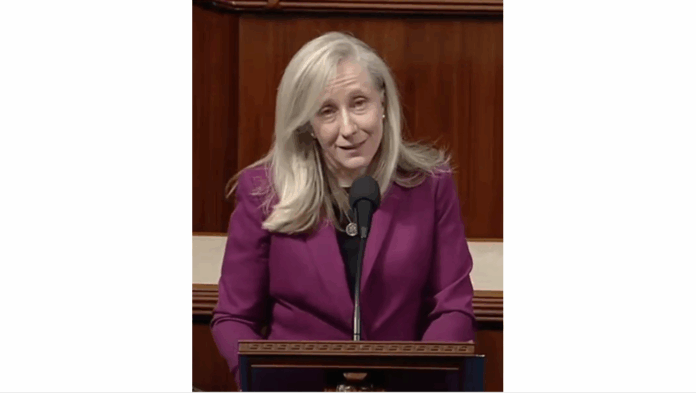Let’s take a closer look at Abigail Spanberger, the Democratic candidate for Governor of Virginia, and her record on transgender issues—particularly as it relates to women’s rights and fairness in sports.
During her six-year tenure (2018–2024) as Virginia’s 7th District Congressional Representative, Spanberger voted against the Protection of Women and Girls in Sports Act of 2023 (H.R. 734). This legislation sought to ensure that participation on girls’ and women’s sports teams would be based on biological sex, not gender identity.
By opposing the bill, Spanberger aligned herself with the view that biological males who identify as female should be allowed to compete in women’s sports.
That’s a striking position for someone who brands herself as a “moderate” or “centrist.” There’s nothing moderate about rejecting legislation supported by an overwhelming majority of Americans, who consistently say in polls that biological males should not compete in female sports.
In her statewide campaign, Spanberger appears to be dodging the issue, deferring instead to organizations like the Virginia High School League (VHSL) and the NCAA to decide eligibility rules for transgender athletes. She has publicly stated that these governing bodies—not lawmakers—are best suited to determine what’s fair in sports.
But critics from across the ideological spectrum—conservatives, independents, Democrats, and women’s advocacy groups—see this as a cop-out that sidesteps the real concerns about fairness, safety, and the integrity of women’s athletics.
Spanberger is also a strong supporter and co-sponsor of the Equality Act, which would expand federal civil rights protections to include gender identity across employment, housing, education, and public accommodations. She frames this support as part of a broader commitment to equality and nondiscrimination.
However, many moderates, as well as those on the right, have grave concerns about several aspects of the Equality Act:
- Women’s Rights and Single-Sex Spaces: By enshrining gender identity into federal law,
the Equality Act could compel access to bathrooms, locker rooms, and shelters based on self-declared gender, compromising women’s privacy and safety. - Fairness in Sports: Conservatives argue that allowing biological males to compete against women in sports undermines fair competition and puts female athletes at a disadvantage.
- Parental Rights and Medical Ethics: Critics warn that the Act could open the door to gender-affirming medical interventions for minors, even against the wishes of parents or conscientious objections by medical professionals.
- Religious Freedom: The Act contains no meaningful exemptions for religious
institutions. If made law, the Equality Act would force religious schools, hospitals, and employers to comply with mandates that may violate their faith-based beliefs—exposing them to lawsuits or penalties. - Free Speech and Compelled Belief: The Equality Act may force individuals to conform to specific language or ideology around gender, effectively silencing dissent and punishing traditional viewpoints.
- Impact on Faith-Based Charities and Women-Owned Businesses: Religious nonprofits and private businesses could be denied funding, licenses, or contracts unless they conform to these new norms, regardless of conscience or conviction.
In short, while Spanberger presents herself as a centrist, her record and policy positions tell a very different story—one that aligns with the most radical elements of her party, often at the expense of women’s rights, parental authority, religious liberty, and basic fairness.
As Virginians weigh their options for governor, they deserve clarity—not ambiguity—on where the candidates stand.
One this is clear, Spanberger’s record on transgender activism speaks louder than her campaign rhetoric.
NEWSLETTER SIGNUP
Subscribe to our newsletter! Get updates on all the latest news in Virginia.


